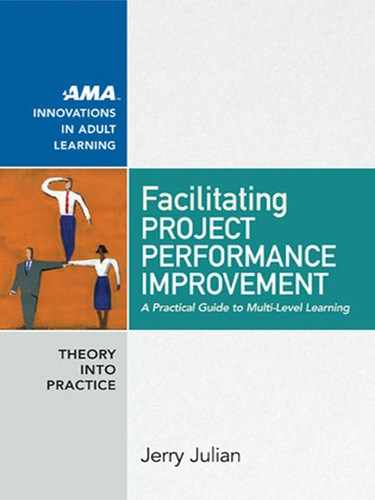The Need for Multi-Level Learning 19
American Management Association
www.amanet.org
that learning from project experience can be perceived as a waste of time
by employees and managers alike.
It may be no surprise, then, that previous researchers have noted “time
pressures” as a signi cant barrier to learning from past project experi-
ences (Disterer, 2002; Keegan & Turner, 2001; Schindler & Eppler, 2003;
Zedtwitz, 2003). In A. Keegan and J. R. Turner’s study of 19 project- based
rms, for example, the authors found that it was “common throughout
the study for respondents to list impressive practices in place to facilitate
organizational learning, and then at the very end to state they do not work,
or are not used, because of the time pressures on those people whose
learning is the focus of these systems” (p. 91).
DEFENSIVE ROUTINES
Indeed, it may not be simply a lack of time that limits systematic learn-
ing, but rather defensive routines that arise from red- light learning. Chris
Argyris (1995) describes organizational defensive routines as “any action,
policy, or practice that prevents organizational participants from experi-
encing embarrassment or threat and, at the same time, prevents them
from discovering the causes of the embarrassment or threat” (pp. 20–22).
“Face- saving” is one such defensive routine, the rules of which Argyris de-
scribes as follows: “When encountering embarrassment or threat, bypass
it and cover up the bypass.”
Other researchers have found the symptoms of defensive routines in
a number of studies, often taking the form of project members’ fear of
publicly airing mistakes or pointing the nger at other team members
(Disterer, 2002; Prencipe & Tell, 2001; Schindler & Eppler, 2003; Zedt-
witz, 2003). In interviews of 27 R&D managers from 13 multinational
companies, for example, Maximilian Zedtwitz (2002) found that public
feedback among team members in postproject reviews is “softened and
rendered ine ective” for the sake of smooth cooperation among sta
members on future projects. Moreover, he found that project members
also feared acknowledging issues related to their own performance that
might be considered mistakes or failures for fear of embarrassment or
threat to their career.
20 Foundations
American Management Association
www.amanet.org
Take, for example, the experience of Melissa, the leader of a PMO who
observed a “lessons- learned” session with a project team:
The project manager was just absolutely despised because of his ap-
proach. [He was] a nice guy, but his approach was always attacking
people. So unfortunately that’s what that turned out to be . . . that at-
titude still came through and it was sort of a blame environment, even
though we tried very much not to [have it that way].
She then went on to talk about how a more senior manager attending
the meeting used “time pressures” as a way to focus solely on what went
wrong:
And it was really interesting because the director who was in there
said, “Do you know what? We don’t have time. This is a short meeting.
Let’s not worry about what went well. Let’s just focus on what went
wrong.”
It is perhaps not surprising that time pressures were also given as the
reason why the ndings were never distributed, communicated, or acted
upon:
By the time he came back, he said, “Well, yeah. That’s great feedback,
but I really don’t have time.” And it never went out to anyone. I don’t
think the feedback went to anyone, in the end. . . . We’re setting up
the PMO but there’s not a lot I can do about this one, only in thinking
about the whole postmortem process in general.
Under conditions of red- light learning, which may also include heated
lessons- learned sessions as in the example just given, learning and re ec-
tion can become perceived as being a punitive experience, making it more
likely that defensive routines will be perpetuated, further reducing the
utility and e ectiveness of these sessions with teams in the future.
The presence of defensive routines may also explain the reasons that
project reviews don’t always bring problems to the surface until it’s too
late. Because project reviews are “top- down”—that is, their purpose is
to inform management of the status of a project and obtain approval
to move forward—problems may not be brought up for fear of reprisal,
..................Content has been hidden....................
You can't read the all page of ebook, please click here login for view all page.
